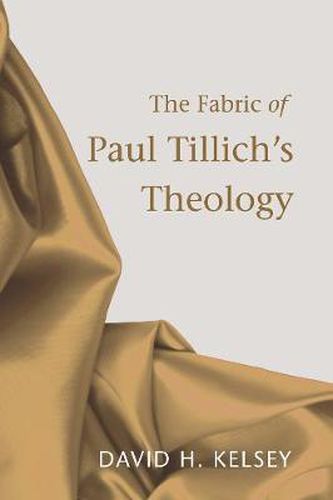Readings Newsletter
Become a Readings Member to make your shopping experience even easier.
Sign in or sign up for free!
You’re not far away from qualifying for FREE standard shipping within Australia
You’ve qualified for FREE standard shipping within Australia
The cart is loading…






This title is printed to order. This book may have been self-published. If so, we cannot guarantee the quality of the content. In the main most books will have gone through the editing process however some may not. We therefore suggest that you be aware of this before ordering this book. If in doubt check either the author or publisher’s details as we are unable to accept any returns unless they are faulty. Please contact us if you have any questions.
By taking seriously Tillich’s claim to be a confessional Church theologian rather than a metaphysician with religious interests, this carefully ordered study gains a fresh perspective on the structure of argument upon which his theological enterprise rests. Scriptural material is shown to control his judgments in much the same way that literature controls those of the literary critic–a particularly illuminating comparison in view of his argument that the verbal icon provided by the biblical picture of Jesus as the Christ bears analogia imaginis to the historical Jesus and hence provides the sole access to the original Christian revelation. Tillich’s movement from symbols as data to theological judgments as conclusions is seen to be warranted, not by his ontology, but by his presentation of the phenomenology of revelatory events. Though historical study of Jesus and of the Bible is in principle irrelevant to this use of scripture, his confusions in this area are examined, and the structural flaws in his accounts of the biblical picture of Jesus are shown to yield a Christian theology in which Christology is oddly dispensable. Finally, his discussion of God is used as a test case for the analysis of the general structure of his argument, and the various sorts of conclusions that he feels Scripture authorizes him to draw are cogently appraised.
$9.00 standard shipping within Australia
FREE standard shipping within Australia for orders over $100.00
Express & International shipping calculated at checkout
This title is printed to order. This book may have been self-published. If so, we cannot guarantee the quality of the content. In the main most books will have gone through the editing process however some may not. We therefore suggest that you be aware of this before ordering this book. If in doubt check either the author or publisher’s details as we are unable to accept any returns unless they are faulty. Please contact us if you have any questions.
By taking seriously Tillich’s claim to be a confessional Church theologian rather than a metaphysician with religious interests, this carefully ordered study gains a fresh perspective on the structure of argument upon which his theological enterprise rests. Scriptural material is shown to control his judgments in much the same way that literature controls those of the literary critic–a particularly illuminating comparison in view of his argument that the verbal icon provided by the biblical picture of Jesus as the Christ bears analogia imaginis to the historical Jesus and hence provides the sole access to the original Christian revelation. Tillich’s movement from symbols as data to theological judgments as conclusions is seen to be warranted, not by his ontology, but by his presentation of the phenomenology of revelatory events. Though historical study of Jesus and of the Bible is in principle irrelevant to this use of scripture, his confusions in this area are examined, and the structural flaws in his accounts of the biblical picture of Jesus are shown to yield a Christian theology in which Christology is oddly dispensable. Finally, his discussion of God is used as a test case for the analysis of the general structure of his argument, and the various sorts of conclusions that he feels Scripture authorizes him to draw are cogently appraised.